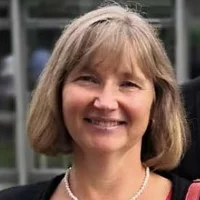The filtered containment venting system is recognized to be an efficient measure to reduce release of radioactivity to the environment in the accident sequences when the containment pressure needs to be reduced to avoid failure of the containment. Many reactors worldwide, and all the Swiss nuclear power plants (NPP) have installed FCVS. After the Fukushima accidents many additional countries have required FCVSs to be installed in their reactors. This project is an experimental investigation of the source term mitigation using FCVS with a focus on wet scrubbers. The wet scrubber systems are generally accepted as having a very high collection efficiency for aerosols under their optimum operation conditions, even though they have a minimum collection efficiency in the particle size range 0.2-0.3 µm (aerodynamic diameter). However, when the conditions are not in the optimal range due to, e.g., decreased water inventory, or the flow rate is outside of the design range, the collection efficiency of the scrubbers decreases. In addition, radioactivity may escape from the scrubbers if droplets are entrained from the pool surface carrying soluble compounds with them, e.g., Cs, and I. Droplet formation may be expected under very high flow rates in the scrubbers, or under boiling conditions due to long-term containment depressurization through the FCVS. Iodine retention for both molecular iodine and organic iodide species in the pools during several venting cycles as well as under varying conditions in the pool, e.g., hot pool, low pH, are further open issues. This project focuses on some of the topics which have not been thoroughly addressed in earlier work:
- Aerosol retention in the FCVS when the flow rate through the FCVS is very low and the inertial forces acting on the particles close to the injection point are relatively small
- Aerosol retention in the FCVS when the flow rate through the FCVS is very high and droplet formation on the pool surface may occur
- Aerosol retention when the water in the FCVS is boiling, and increased release of fission products may occur due to carry-over of soluble material in the droplets and steam
- Iodine retention during multiple venting cycles
- Long-term behavior of iodine in the scrubber solution
- Test of additives in the water to retain organic iodine

